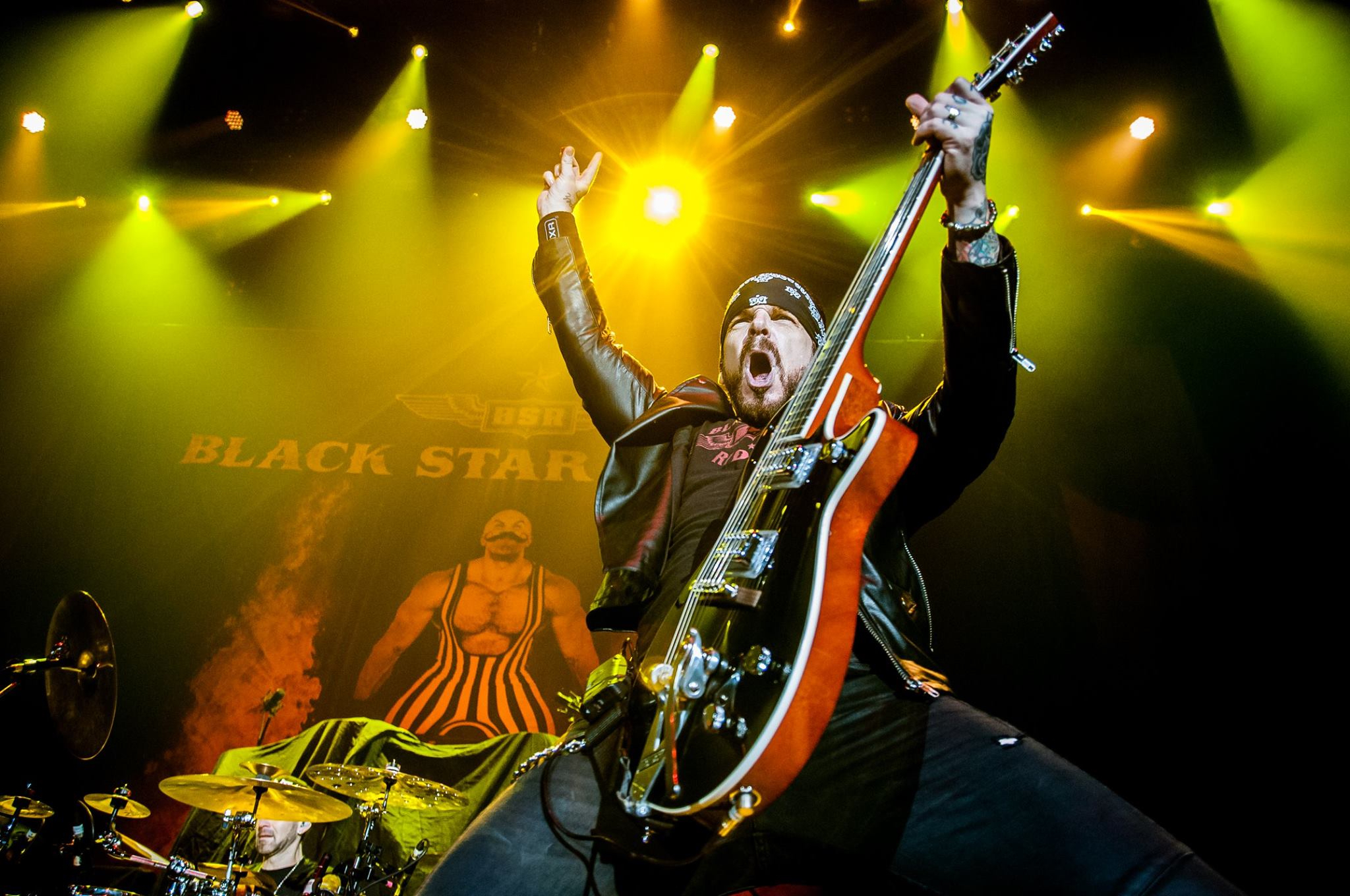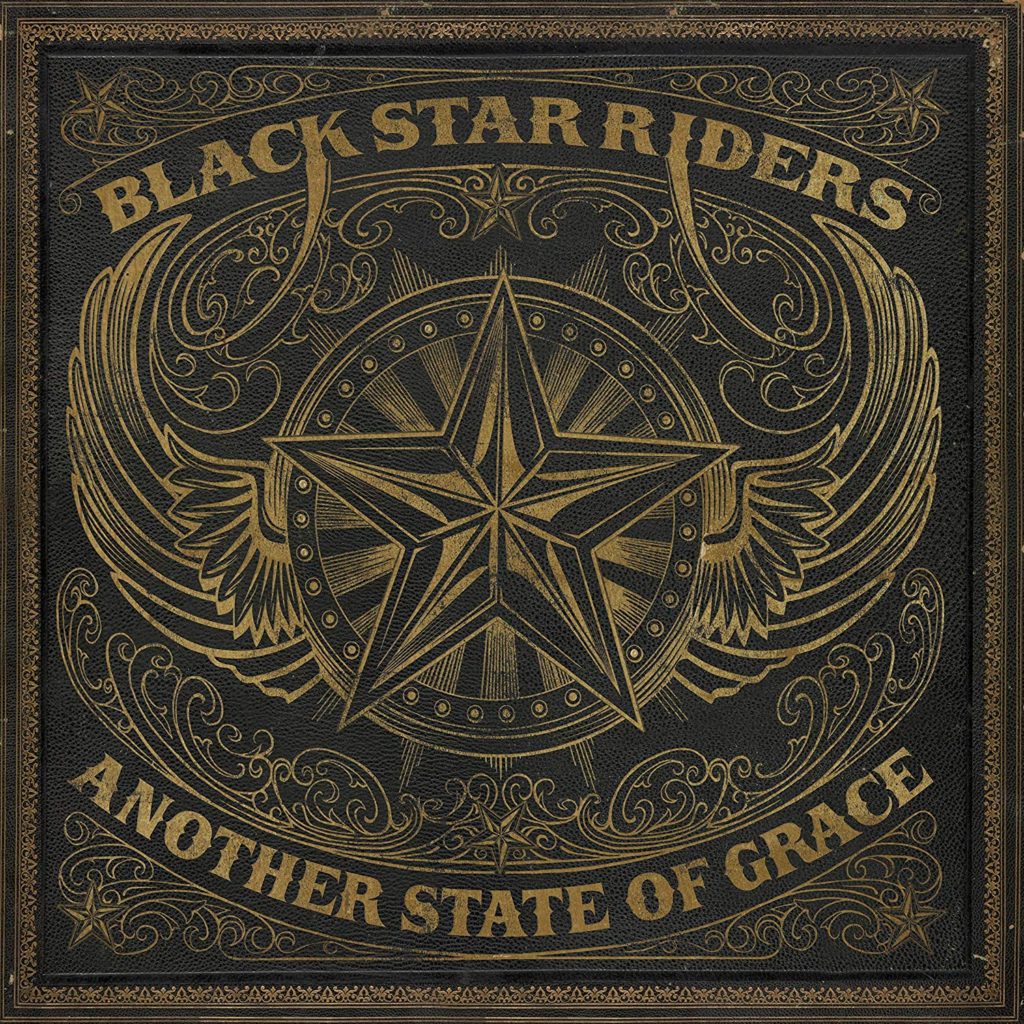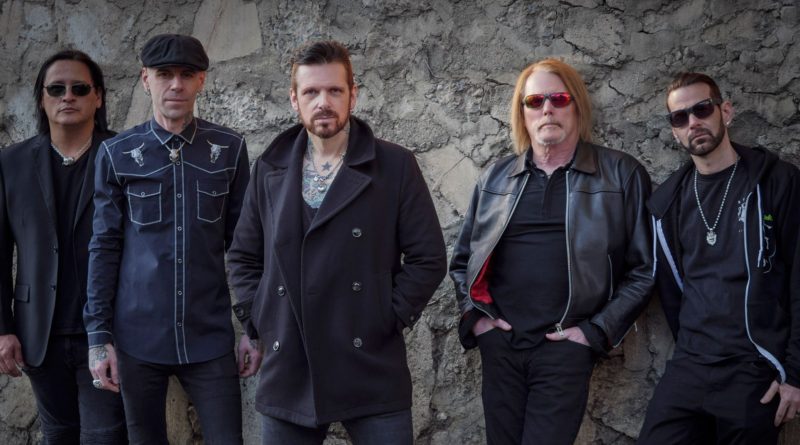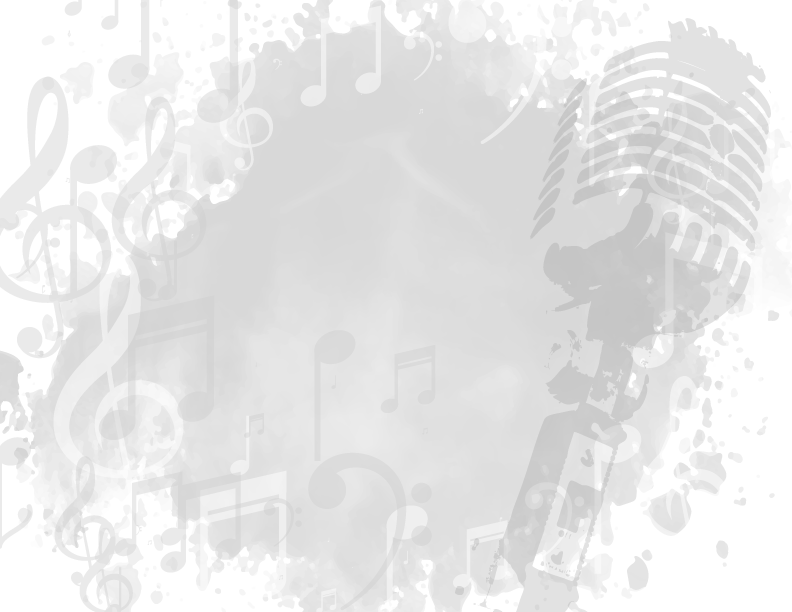Giving Grace: A Conversation with Ricky Warwick of Black Star Riders
Black Star Riders recently returned to the hard rock fold in early September with a solid new album, “Another State of Grace,” the band’s fourth offering of fresh material since 2013.
Despite the departure of longtime guitarist Damon Johnson in November of 2018 and drummer Jimmy DeGrasso less than a year earlier, the quintet’s sound remains untarnished on the new platter, thanks in part to the work of vocalist and primary songwriter Ricky Warwick and ex-Thin Lizzy guitarist Scott Gorham.
Tracks like the twin-guitar beauty of “Tonight The Moon Let Me Down,” (complete with a surprising appearance of a saxophone, no less) and “Ain’t the End of the World” are Lizzy-esque in sound and feel. “Soldier In the Ghetto,” the clean and melodic “What Will It Take,” or “Poison Heart,” are quality reminders, however, that this band is anything but clones riding the coattails of another band’s legacy. While there may be natural hints of Thin Lizzy here and there, “Another State of Grace” is a statement that Black Star Riders stand on their own — and with conviction.

Warwick and Gorham, along with Robbie Crane (bass), Chad Szeliga (drums) and newest member Christian Martucci (guitar) of Stone Sour, are currently on an extensive tour of Europe until late November, but Warwick took time to speak with ListenIowa prior to departure about the band’s latest album, the shadow of late Thin Lizzy vocalist Phil Lynott, and gun control here in the U.S.
ListenIowa: Congratulations on the release of “Another State of Grace.”
Ricky Warwick: Thanks! We are really proud of it. It’s clichéd to say it’s the best record we’ve ever made, but I’ll go ahead and say that it’s the best record we’ve ever made. I’ve been making records for 30 years and have been blessed to work with some amazing producers and in some amazing studios, but for me personally, this one was the most fun, interesting and educational.
LI: How so?
RW: Everything was different this time. It was the first time for a lot of things for us. Usually you go in the studio, play together, keep 10 or 11 drum tracks and go home. The bass player will put his tracks down then go home, then into the guitars, and so forth. You build songs in banks. I’m usually there for the whole process, and usually the last man standing. There will be five days left to record and I’ll be looking at 11 vocals to do in that time. There’s a lot of pressure that comes with that. But with Jay Ruston (producer) this time, he basically wanted to do a song a day, so we would go in and play as a band. None of us had recorded this way, and it was a revelation for all of us. It was the most stress-free way to record, for me. We booked three weeks to record and we were done in two-and-a-half. The last few days we were basically just listening back and patting ourselves on the back saying, “Doesn’t this sound great?” (laughs)
LI: In between touring, you guys have managed to put out four albums since 2013, which kind of bucks the trend these days of releasing new material.
RW: It’s an old school thing from growing up in the 70s and 80s when bands would put out a record a year, sometimes two. I loved that. And I love to write songs. Everyone in the band has a great work ethic, and we all love to be creative. We very much like to create and write. Thankfully we’re very prolific and always working on ideas. It’s not like we have an album looming and it’s like, “Oh man, we’ve got to disappear for three months and come up with 20 songs.” When it comes time for an album, we usually have 25 or 30 songs already.
LI: It’s nice to have multiple songwriters and ideas in the flow.
RW: Yeah, what will happen is I’ll get an idea, take it as far as I can, and then take it to Christian and work it up into a demo. Or sometimes I’ll just finish it on my own. Scott and Robert will bring in riffs, too, then Christian and I will work them into a finished song. I’m the main songwriter and write all the lyrics, the melodies and a fair majority of the guitar riffs as well.
LI: Speaking of new songs, the lyrics of “In the Shadow of the War Machine” from the new album, come from the standpoint of, no matter what we do in life, there always seems to be a war going on the background, which is indeed true.
RW: That was one of the first songs I started on after we finished the last record. I’m a huge fan of Motown. Barry Gordy and all that stuff. How the label worked, and how they forget about class and color; it was just about the music. I loved that. I listened to Edwin Starr’s song, “War.” That’s such a powerful track. Right about that time I was writing that, Trump had just gotten into power here in the States and the crisis in North Korea had just gotten into full swing. It seems like there’s always a war going on somewhere, and we’re involved in something whether it’s the arms race or money. And there’s 35,000 homeless in the streets of Los Angeles, we can’t feed or educate people properly, there’s no healthcare. But we always seem to find money to find guns and go and attack other countries. Sometimes it’s legitimate and we need to go there and defend democracy. But we have to look after our own people. It’s a crime. We have enough money to make sure they don’t, and we need to address it.
You also touch on another relevant — and highly controversial — topic with “Why Do You Love Your Guns?”
RW: I’ve opened a can of worms with that one. (laughs) That song was written after Sandy Hook. I was back in Belfast, Ireland. My daughter is about the same age as those kids who were so horribly murdered. It struck a chord, so I wrote down some words on how I was feeling, which is how I tend to deal that stuff. Sometimes I’m not very good at expressing myself with that kind of stuff, so this is how I do it — I write. I’ve always done it. I grew up in Northern Ireland in the 70s and 80s. Sadly, it was the most violent and dangerous country to live in in Western Europe at that time. I grew up, I saw gun violence, I saw bigotry, hatred and religious prosecution, and what it did to my family and friends. I lost by brother-in-law to gun violence. He couldn’t buy a gun in the state he lived in, so he simply moved to another state, bought a gun that should never have been sold to him, and killed himself. I can only write from my personal experience. I’m not saying ban all guns. I believe in people’s rights to carry a firearm. All I’m saying is, come on, it’s not even politics, it’s common sense. Let’s make the background checks more stringent. Let’s not fail the people who we know have felonies or mental health issues and make sure the can’t get firearms. And enough with the military stuff. Let’s leave that to them. Let’s leave that hardware for the guys in the military who know how to use it. The general public does not need to get their hands on that kind of hardware. I’ve gotten a lot of great emails from ex-servicemen who agree with me. It appalls them, too. It has nothing to do with being a Democrat or a Republican. It’s just common sense. The last line is “love is the only thing in this world.” I still believe in the human spirit and human kindness that will get us through the tough times we face. There’s still a lot of good in the world.
LI: What did your newest member, Christian Martucci, bring to the table?
RW: He’s really amazing. We found a real diamond with him. He’s a hell of a guitar player, obviously, and is a chilled, laid back, funny guy. Everything you could want. He just fit in seamlessly. Obviously it was tough to lose our brother Damon. But Christian came in, and we just kept on rolling. I think he’s brought a certain edginess to the band that we didn’t have before. I can’t say enough good things about him. He’s wonderful.
LI: Were you surprised by Damon’s decision to leave the band?
RW: Being as close to Damon as I am, I could see it coming before he told me, only because I know him that well. The body language. I could kind of sense that he wasn’t happy being in the band anymore. So when he told me, it wasn’t a shock. I kind of half expected it. But Damon being the gentleman he is, he didn’t tell us he was leaving the band and it would be next week. It was, “It breaks my heart, but I have to leave the band for personal reasons. I will stay until you find somebody else.” He did it in the most gracious way. So we had six months to find somebody, so by the time Christian was in place and Damon left last November, we were already up and rolling. We’d already been writing and demoing with Christian. It made everything smooth.
LI: You and Damon also went out and played acoustically now and then. Will you still be continuing that with him?
RW: Not really. Only because he’s concentrating on his solo stuff, which is one of the reasons he wanted to leave. And I’m immersed in Black Star Riders, obviously, so don’t know if we’ll do anything again. Once this Black Star Riders tour is finished, I’d like to start working on my own solo record in 2021, and I’ll be busy with that. I loved doing that stuff with Damon, but time-wise, I’m not sure when we’d even get the chance.
LI: With you being the primary writer in Black Star Riders, what’s going to be the difference between the band’s material and what you do on a solo album?
RW: (laughs) That’s a good question. I don’t know. When I’m writing a song, I know if it’s for Black Star Riders. Or, like I said earlier, I’ll have something that I think sounds really good, then take it to Christian. With the solo stuff, I get to be a complete selfish narcissist. (laughs) It might be a bit looser. I’ll be playing all the guitar on it, and it’s just a bit more self-indulgent to be totally honest with you. I won’t be worrying about what the other four guys can bring to the table or what they can play on the song. I’m only thinking about me. It’s as simple as that.
LI: Because of that Thin Lizzy/Irish DNA the band has, when you play Dublin, Ireland, the home of the late Phil Lynott, what’s the reaction?
RW: It’s a tough gig. Phil is held in such high esteem in that city, and rightly so. There are a lot of people going, “All right. OK. Black Star Riders.” There’s a little bit of that going on. I’m not saying the crowds are bad there, I’m just saying that you’ve got a lot to live up to there. You have to prove yourself.
LI: The band originally started as Thin Lizzy but switched gears, dropped the moniker, and went with Black Star Riders. When was the moment in which you knew you needed to go a different route with this?
RW: I think the point was when we basically began to let our hearts rule our heads. It was almost a simultaneous moment when we all went, “Hang on. This is taking it a step too far.” We were well into the demoing process of what would be the first Black Star Riders album, which we thought was going to be the first Thin Lizzy record in 30-some years. I think that when we just sat down and analyzed things, realized what we were doing, what was at stake, Phil’s name, respecting the legacy, we just suddenly realized that this wasn’t the right thing to do. Keeping alive the songs that Phil wrote is great and one thing, but writing songs without Phil being here or being involved and still putting the Thin Lizzy name on it isn’t the right thing to do. I think when it was suggested and decided that it was the right thing to do, it just cleared the air, and I think everyone just breathed a sigh of relief, honestly. It was totally 100 percent the right decision.
LI: Is it tough to being a known entity when you tour Europe as compared to here in the U.S.?
RW: We’re much bigger in Europe than we are in the States unfortunately, just because of my past being in The Almighty, and Scott being in Thin Lizzy, who are massive over there. We have a strong foothold over there. So when we come to America to do shows, they’re smaller, but the fans are just as loyal and passionate. The ideal thing for us would be to get on a great package tour that’s playing arenas to try to expose the band to people that haven’t heard us. If that doesn’t happen, we will come, select a few of the clubs in areas where we feel the band has a bit of a foothold, and we’ll start working it. It’s very important to us to try and build up the reputation of Black Star Riders in the States. Judas Priest took us out on a wonderful tour last year, and we do have plans to come to States in early 2020 to tour again.


